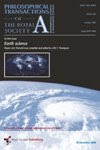"The public reception of scientific ideas depends largely on two factors: people's ability to grasp factual information and the cultural lens through which that information is filtered. The former is what scientists tend to focus on when they give popular accounts of issues such as climate change. The assumption is that if they explain things very, very clearly, everyone will understand. Unfortunately, this is an uphill battle. The general public's average capacity to weigh facts and numbers is notoriously poor — although there is encouraging evidence that probabilistic reasoning can be improved by targeted education early in life" is Natures Editorial line. It continues
"Even more crucial, however, are the effects of the cultural lens."
The classical case of Darwin is summarized with talent. The negative reaction of the Church in England, is compared to the more positive welcome by much of the "3rd World" at the time, hoping to "improve their lot" embraced the theory, In China, Darwin's ideas were seen as supporting Confucians' belief in the perfectibility of the cosmic order. Latin American and Russian reaction figure in this enlightening Editorial.
"The lesson for today's scientists and policy-makers is simple: they cannot assume that a public presented with 'the facts' will come to the same conclusion as themselves. They must take value systems, cultural backdrops and local knowledge gaps into account and frame their arguments accordingly."
[As yet another international round cop15 is about to start Dec 7-18, 2009]
Nature's Editors warn:
The lesson for today's scientists and policy-makers is simple: they cannot assume that a public presented with 'the facts' will come to the same conclusion as themselves. They must take value systems, cultural backdrops and local knowledge gaps into account and frame their arguments accordingly. Such approaches will be crucial in facing current global challenges, from recessions to pandemics and climate change. These issues will be perceived and dealt with differently by different nations — not because they misunderstand, but because their understanding is in part locally dependent.
The Editorial concludes:
"Darwin once said: "But then with me the horrid doubt always arises whether the convictions of man's mind, which has been developed from the mind of the lower animals, are of any value or at all trustworthy." Researchers and policy-makers would do well to mimic his humility when presenting science, and remember how people's minds truly work."
And what of Shakespeare's quote This above all -to thine own self be true, And it must follow, as the night, the day, Thou cans't not then be false to any man.»?
All My Pages
Where my visitors are
A380's TRENT XWB
Materials Science and Engineering, Durable Development, Recycling..

Custom Search
Blog List-Free Science and Engineering Information Resources cf also Side and Bottom menu bars
-
-
Research Headlines - Motoarele cu ardere internă au un viitor luminos datorită aprinderii cu laser - [image: Image]Până să devină practice și tuturor accesibile mașinile electrice și alte inovații energetice, va mai fi larg folosit motorul cu ardere, rezul...4 years ago
-
Research Headlines - Inteligentne miasta zorientowane na obywateli - [image: Image]Dzięki technologiom IT usługi miejskie mogą być bardziej wydajne, dostępne i przyjazne dla środowiska. By takie rozwiązania były efektywne, m...4 years ago
-
Research Headlines - En route to safer, more reliable autonomous driving - [image: Image]The development of autonomous driving systems is currently a focus of research for the automotive industry. An EU-funded project has moved wo...4 years ago
-
Instant Inflation Systems for Stand-Up Paddle Boards - Inflatable Stand-Up Paddles (SUP) have provided great flexibility to enthusiasts and allowed the sport to grow in popularity. However, manually or electr...7 years ago
-
The List of Online and Free Access Journals about Metallurgy , Mining - The List of Online and Free Access Journals about Metallurgy and Mining RKOJ = Related Keywords of the Journal Open Mineral Processing Journal RKOJ: ...15 years ago
-
-
Scientific Reports - nature.com science feeds
Physical sciences : nature.com subject feeds
Materials science : nature.com subject feeds
Wednesday, 28 October 2009
What all scientists and policy makers must contend with-Science Communication-Public Understanding...of Science
Subscribe to:
Post Comments (Atom)











No comments:
Post a Comment